夏日書(shū)單:這五本書(shū),比爾·蓋茨勸你今夏讀一讀 Bill Gates thinks you should read these five books this summer
中國(guó)日?qǐng)?bào)網(wǎng) 2019-05-31 13:44

外面太熱,在家吹著空調(diào)吃著冷飲讀讀書(shū)?比爾·蓋茨近日為大家推薦了五本書(shū),供大家在閑時(shí)一讀。
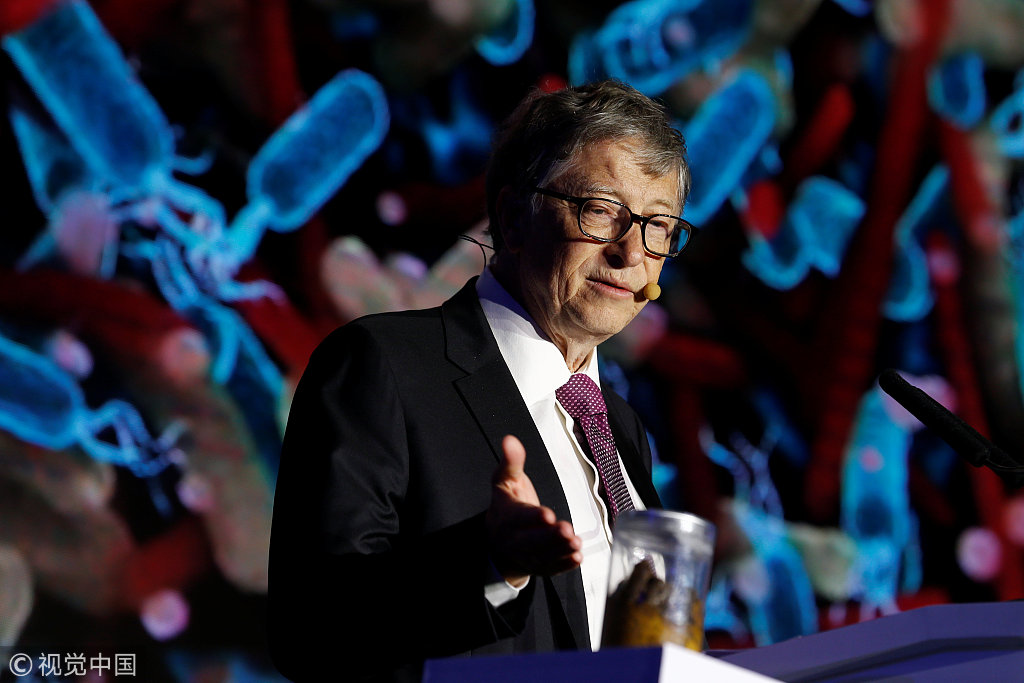
Bill Gates isn’t doing much light reading this summer.
比爾·蓋茨這個(gè)夏天讀的都不是什么閑書(shū)。
For his annual list of reading recommendations for the season, he’s picked five books that you can really sink into on vacation.
他為本季推薦書(shū)單挑選了5本書(shū),供你在休假時(shí)潛心閱讀。
The billionaire philanthropist wants readers to learn more about upheaval and its impact on society, both on individual and mass levels. From the way presidents have led during some of the nation’s biggest wars to how people react during times of crises, these books look at what happens when our lives are disrupted.
這位億萬(wàn)富豪慈善家希望讀者更多地了解個(gè)人和大眾層面的劇變及其對(duì)社會(huì)的影響。從美國(guó)總統(tǒng)在一些最大規(guī)模戰(zhàn)爭(zhēng)中的領(lǐng)導(dǎo)方式到人們?cè)谖C(jī)時(shí)期的應(yīng)對(duì)辦法,這些書(shū)關(guān)注的是當(dāng)我們的生活被攪亂時(shí)會(huì)發(fā)生什么。
upheaval[?p'hi?v(?)l]:n.劇變
Even though these topics aren’t necessarily synonymous with “beach reads,” Gates encourages readers to give them a go. In a post announcing his recommendations on his official blog, Gates Notes, he writes that his philosophy is that he’d “rather have too much to read on a trip than too little.”
盡管這些話(huà)題未必等同于“海灘輕松讀本”,蓋茨還是鼓勵(lì)大家讀一讀。蓋茨在其官方博客“蓋茨筆記”上發(fā)布他的推薦書(shū)單時(shí)寫(xiě)道,他的理念是“在旅途中寧可多讀也不少讀”。
synonymous [s?'n?n?m?s]:adj.同義的
以下是蓋茨推薦的五本書(shū):
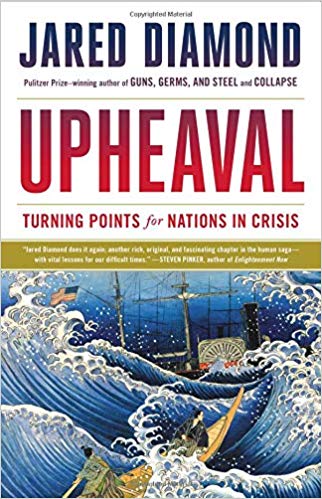
Upheaval, Jared Diamond
《劇變》(賈里德·戴蒙德)
Gates has long been a fan of Diamond’s books, and notes that 1997’s Guns, Germs, and Steel is one of the best books he’s ever read. In Upheaval, Diamond examines how people react to the different crises in their lives. Specifically, Diamond looks at how six countries responded to big challenges, and learned how to adapt in the face of adversity. “It sounds a bit depressing,” Gates writes. “But I finished the book even more optimistic about our ability to solve problems than I started.”
蓋茨一直是戴蒙德作品的粉絲。他說(shuō),1997年的《槍炮、病菌與鋼鐵》是他讀過(guò)的最優(yōu)秀作品之一。在《劇變》一書(shū)中,戴蒙德探討了人們?nèi)绾螒?yīng)對(duì)生活中的各種危機(jī)。具體而言,戴蒙德檢視了六個(gè)國(guó)家如何應(yīng)對(duì)重大挑戰(zhàn)并在逆境面前學(xué)會(huì)適應(yīng)。蓋茨寫(xiě)道:“這聽(tīng)起來(lái)有點(diǎn)壓抑,但讀完這本書(shū)后,我對(duì)我們解決問(wèn)題的能力比剛開(kāi)始讀的時(shí)候更加樂(lè)觀(guān)了。”
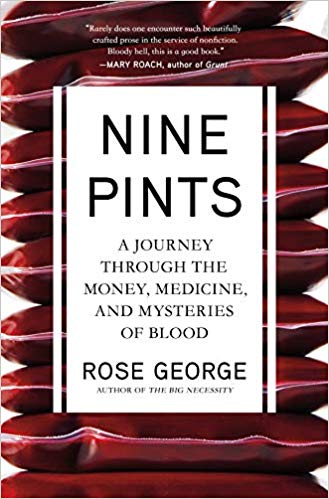
Nine Pints, Rose George
《九品脫》(羅絲·喬治)
Not one to get squeamish about blood, Gates glowingly recommends this deep dive into what makes up our blood. Even though this may not be a “typical light summer book,” Gates thinks everyone should know more about this topic. “After all,” he writes, “there is nothing that more people have in common than blood.”
作為一個(gè)并非一見(jiàn)血就緊張的人,蓋茨熱情洋溢地推薦了這本深入講述人體血液構(gòu)成的書(shū)。盡管這恐怕不是一本“典型的夏季閑書(shū)”,但蓋茨認(rèn)為每個(gè)人都應(yīng)該對(duì)這個(gè)話(huà)題有更多的了解。他寫(xiě)道:“畢竟,人們最有共同點(diǎn)的莫過(guò)于血液。”
squeamish ['skwi?m??]:adj.易嘔吐的;易生氣的
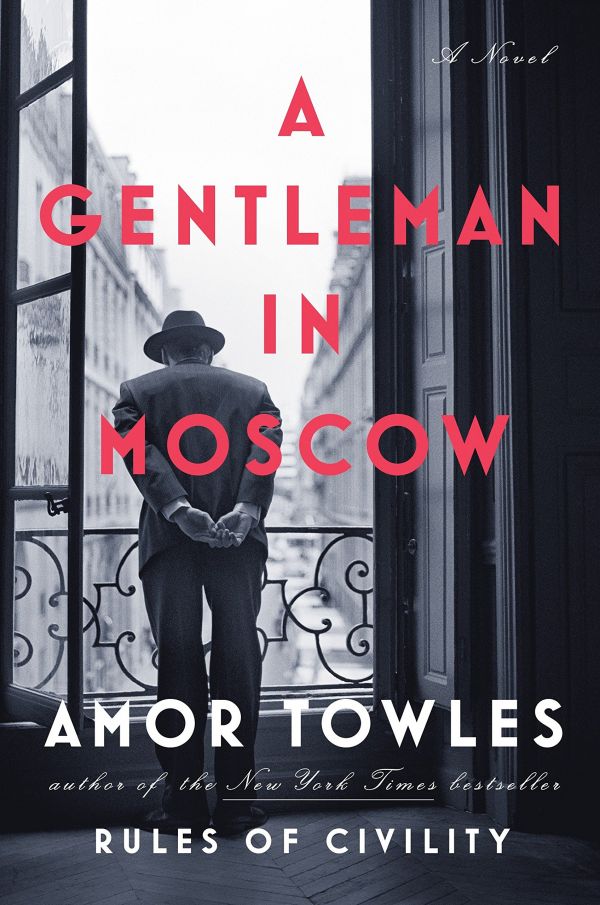
A Gentleman in Moscow, Amor Towles
《莫斯科紳士》(阿莫爾·托爾斯著)
It’s 1922 and Count Alexander Rostov has just been sentenced to spend the rest of his life under house arrest in a Moscow hotel. Even though A Gentleman in Moscow is sure to please anyone who is interested in learning more about Russia, Gates writes that “you don’t have to be a Russophile to enjoy the book.” Towles goes beyond just politics in his best-seller. “The book is technically fiction,” Gates writes. “But you’d be just as accurate calling it a thriller or a love story.”
那是1922年,亞歷山大·羅斯托夫伯爵剛剛被判處終身軟禁在莫斯科的一家酒店。盡管凡是愿意了解俄羅斯的人肯定都會(huì)喜歡《莫斯科紳士》,但蓋茨寫(xiě)道:“你不一定非得熱愛(ài)俄羅斯才會(huì)愛(ài)讀這本書(shū)。”托爾斯的這本暢銷(xiāo)書(shū)并不局限于政治。蓋茨寫(xiě)道:“這本書(shū)從嚴(yán)格意義上講是虛構(gòu)類(lèi)圖書(shū),稱(chēng)它為驚悚小說(shuō)或愛(ài)情故事也不為過(guò)。”
house arrest:軟禁
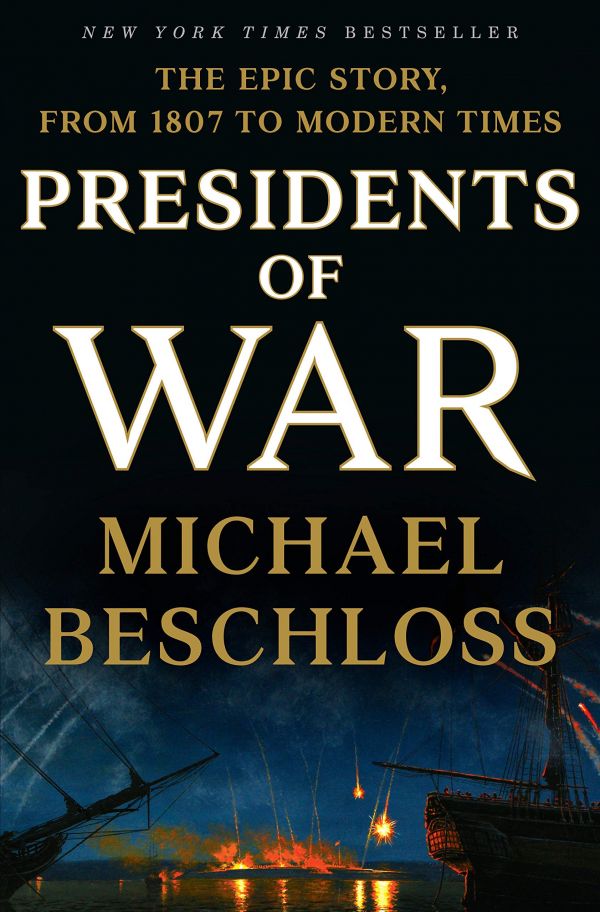
Presidents of War, Michael Beschloss
《戰(zhàn)時(shí)總統(tǒng)》(邁克爾·貝施洛斯著)
The scope of historian Michael Beschloss’ book is wide: He studies how presidents dealt with nine different US conflicts, from the War of 1812 to the Vietnam War. Beschloss highlights how these presidents served during these tumultuous times, and makes critical connections about their decisions and power as leaders. Gates appreciated being able to draw lessons from the book, and apply them to our present moment. “It is hard to read about today’s conflicts without thinking about how they might connect to the past and what impact they might have on the future,” Gates writes.
歷史學(xué)家邁克爾·貝施洛斯的這本書(shū)涉及面很廣:他研究了美國(guó)總統(tǒng)如何處理從1812年戰(zhàn)爭(zhēng)到越南戰(zhàn)爭(zhēng)的九場(chǎng)沖突。貝施洛斯著重講述了美國(guó)總統(tǒng)在這些動(dòng)蕩時(shí)期如何履行職責(zé),指出他們作為領(lǐng)導(dǎo)人所做的決定與他們的權(quán)力之間有著重要聯(lián)系。蓋茨認(rèn)為能夠從這本書(shū)中吸取經(jīng)驗(yàn)教訓(xùn),并將其運(yùn)用于我們的當(dāng)前時(shí)刻。蓋茨寫(xiě)道:“在讀到有關(guān)當(dāng)今沖突的報(bào)道時(shí)很難不想到它們與過(guò)去有何關(guān)聯(lián)、又會(huì)對(duì)未來(lái)有何影響。”
tumultuous[tj?'m?ltj??s]:adj.吵鬧的;騷亂的
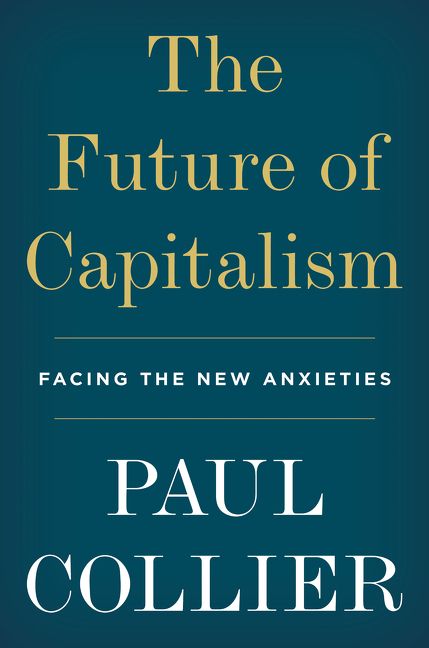
The Future of Capitalism, Paul Collier
《資本主義的未來(lái)》(保羅·科利爾)
Where is capitalism heading? Oxford economist Paul Collier analyzes this question in his book, which looks at how some people benefit from capitalism, while others do not. Though Gates writes that he’s not on the same page with Collier about everything, The Future of Capitalism stuck with him. “I was especially struck by the central idea of his book, that we need to strengthen the reciprocal obligations we have to each other,” Gates writes.
資本主義將走向何方?牛津大學(xué)經(jīng)濟(jì)學(xué)家保羅·科利爾在他的書(shū)中分析了這個(gè)問(wèn)題,檢視了為何有些人從資本主義獲益而另一些人不然。盡管蓋茨表示他并不在所有事情上都與科利爾意見(jiàn)一致,但《資本主義的未來(lái)》一書(shū)讓他深有感觸。蓋茨寫(xiě)道:“給我印象尤為深刻的是該書(shū)的核心思想,即我們必須增強(qiáng)對(duì)彼此負(fù)有的對(duì)等義務(wù)。”
on the same page:達(dá)成共識(shí)
reciprocal [r?'s?pr?k(?)l]:adj.互惠的;相互的
來(lái)源:《時(shí)代》周刊網(wǎng)站、參考消息網(wǎng)
編輯:yaning

















 英語(yǔ)點(diǎn)津微信
英語(yǔ)點(diǎn)津微信 雙語(yǔ)小程序
雙語(yǔ)小程序